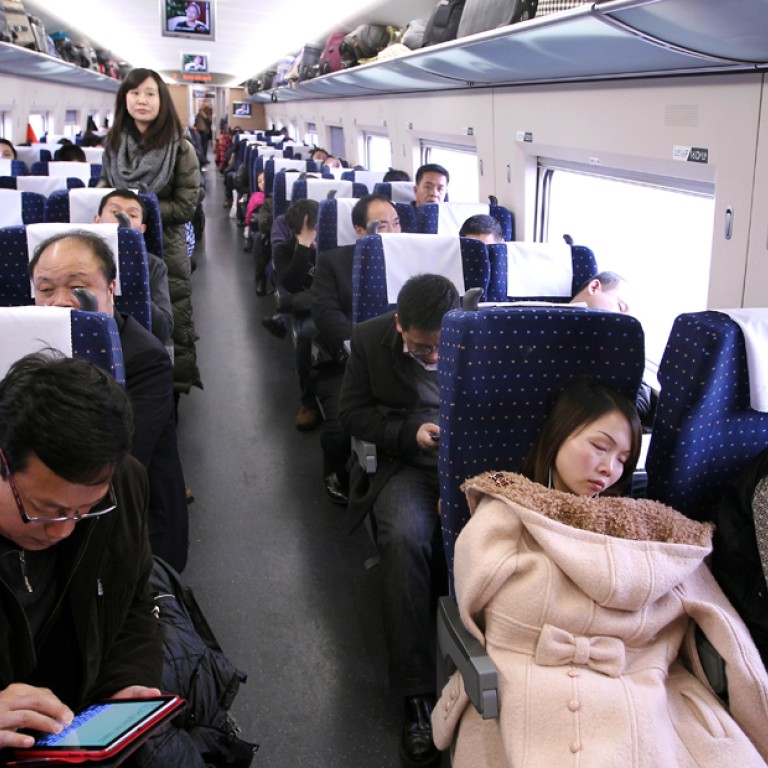
Residents angry over Beijing rail link
Revised route fails to alleviate fears over project that links the capital with Shenyang, Liaoning
People in Beijing living near the route of a high-speed railway line have rejected a revised construction plan that shortens the route, saying they still don't know enough about how the project will affect their environment.

The new plan shortens the link by at least a dozen kilometres and allows it to pass through fewer densely populated residential areas, according to the state-owned company responsible for the design, the Third Railway Survey and Design Institute Group Corporation.
It will end at the Xinhua Railway Station, in a suburban area on the East Fifth Ring Road, instead of the Beijing Railway Station in the city centre.
The company has unveiled six measures aimed at alleviating residents' concerns, including the construction of sound-proof shields around the terminal.
But many are still unhappy with the project. Up to 200 representatives from estates that sit along the planned route staged a protest yesterday outside the Ministry of Environmental Protection.
One local resident, who used the name Mo Mo, said the representatives hoped to pressure authorities into holding a new survey, conducted by a third party, on how the residents felt about the project. Results of such surveys are incorporated into reports a project's environmental impact and can affect whether authorities approve it.
"The design company has falsified documents in order to push along environmental impact studies in the past," he said. "We feel we can no longer trust whatever plan or promise we're offered without an independent and transparent survey."
The project has failed to pass the environmental impact assessment three times since March 2009, largely due to residents' opposition.
Home owners have become increasingly vocal in recent years about safeguarding their property amid deepening distrust of authorities.
The ministry and the design company have yet to respond to the residents' calls.
The mainland-based newspaper quoted an official from the design company as saying it had never encountered so many difficulties with an environmental impact evaluation. He conceded the construction plan might have to be revised again due to the public disapproval.
The Beijing-Shenyang High-Speed Railway is part of the backbone Beijing-Shenyang-Harbin Railway. It is expected to be finished next year and will cut travelling time between Shenyang and Beijing in half, to about 2½ hours.
According to the current blueprint, the railway tracks will run as close as 32 metres to some villages and housing estates near the terminal. This is at odds with government guidelines that rail lines be at least 200 metres away from homes.
Wang Mengshu, a railway specialist at the Chinese Academy of Engineering, said tunnels could offset some of the problems associated with building railways in densely populated areas, but the cost could be high.
Mo Mo said the revised link would no longer pass through his neighbourhood but he would continue his fight for an independent survey.
He said previous surveys the design company conducted were not reliable. He said pollsters were not honest about the purpose of the survey, and told residents it only related to the installation of sound-proof shields.
Liu Shuzhen, an activist living near the planned terminal, said residents deserved a better deal. A train already passed her estate once every two hours along lower-speed lines, she said. When the high-speed service began, six trains an hour would pass through her area, she said.
Liu said residents had complained for years to the authorities about existing train services, which ran on heavily worn tracks, making them noisy. "We just don't want it to happen again. When problems pop up from the high-speed rail services in the years ahead, we will have no one to turn to for help."
